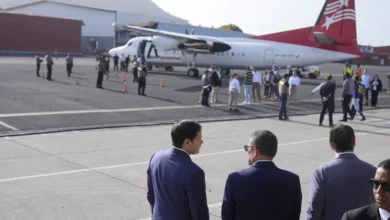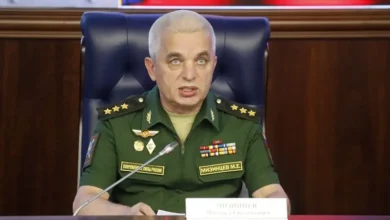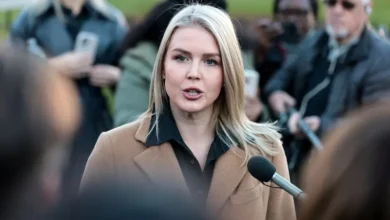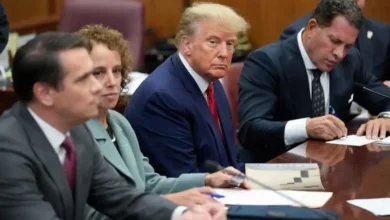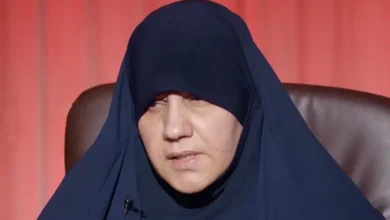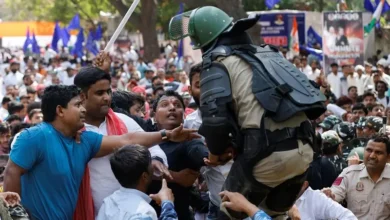Can Bola Tinubu, Nigeria’s ailing kingmaker, win the presidency?
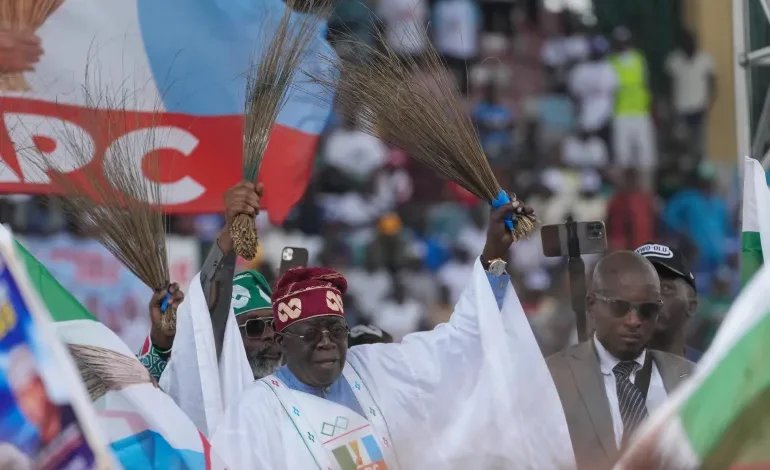
Even before independence in 1960, Nigeria’s deeply embedded culture of political patronage was apparent. To date, kingmakers often jockey to become kings and kings morph into kingmakers, but no political godfather has ever become the number one citizen.
After independence from Britain, the leader of the party with a parliamentary majority was meant to become the first prime minister. The lot fell to Ahmadu Bello, a powerful politician and aristocrat known by his title of Sardauna of Sokoto. But he declined, nominating his protégé Tafawa Balewa in his stead.
In 1979, Obafemi Awolowo, former finance minister and founder of the now defunct Unity Party of Nigeria, fell at the final hurdle, losing his presidential bid.
Ahead of the 1993 polls, retired general Shehu Yar’adua was barred alongside dozens of other heavyweight politicians by the military administration. His political associate and business partner Moshood ‘MKO’ Abiola won the polls that were later annulled by the regime.
This February, Ahmed Bola Tinubu, leader of the ruling All Progressives Congress (APC) and indisputably the most influential political godfather in Nigeria now, is seeking to end that record.
But Tinubu, regarded as a master strategist and seen by his supporters as Awolowo’s political heir, is facing perhaps the toughest hurdles of any kingmaker who has ever wanted the throne.
Indeed, as President Muhammadu Buhari’s tenure winds out after serving the constitutional limit of two four-year terms, Africa’s largest democracy is witnessing its first-ever three-man presidential race.
Former Vice President Atiku Abubakar, a former Yar’adua protégé and previously APC presidential aspirant, is the flagbearer of the leading opposition, the People’s Democratic Party (PDP).
But there is also Peter Obi, a two-time governor of the southeastern state of Anambra who ran alongside Abubakar in 2019, who enjoys a massive youth following despite moving from the PDP to the hitherto unknown Labour Party only last May.
A fourth candidate, former Defence Minister Rabiu Kwankwaso, another Yar’adua associate and former two-term governor of Kano – a huge voting bloc in the northwest – is lagging not too far behind.
‘It is my turn’
In June 2022, ahead of the APC presidential primaries, Tinubu appeared before the party faithful in Ogun state to seek delegates’ votes. During his speech, he noted that he had installed the state governor and helped Buhari clinch the presidency after three unsuccessful attempts.
“E mi lokan”, he said, the Yoruba phrase for “it is my turn”. It has since come to define his campaign.
On December 18, the triumph of Argentina’s men’s football team over their resilient French counterparts in the 2022 Qatar World Cup final was seen as a swansong for Lionel Messi. After the game, Tinubu’s official Twitter handle posted a meme with the politician’s signature cap superimposed on the footballer’s face. It was a tacit allusion that like the World Cup for Messi, the Nigerian presidency remains the one height Tinubu is yet to scale.
“Every move he has made has been leading to this point and he has been very deliberate about certain actions that led to this point,” Tunde Ajileye, a partner at SBM Intelligence, a Lagos-based geopolitical intelligence consultancy, told Al Jazeera.
Tinubu first came to national relevance during the 1993 election, defending Abiola’s presumed victory as a member of the National Democratic Coalition (NADECO), an alliance of politicians and civil society, after a brief stint as a senator.
After two terms in office as governor from 1999 to 2003, he installed favoured candidates as successors in Lagos. But his magnum opus came in 2015: his party’s merger with that of Buhari who went on to unseat incumbent president Goodluck Jonathan.
